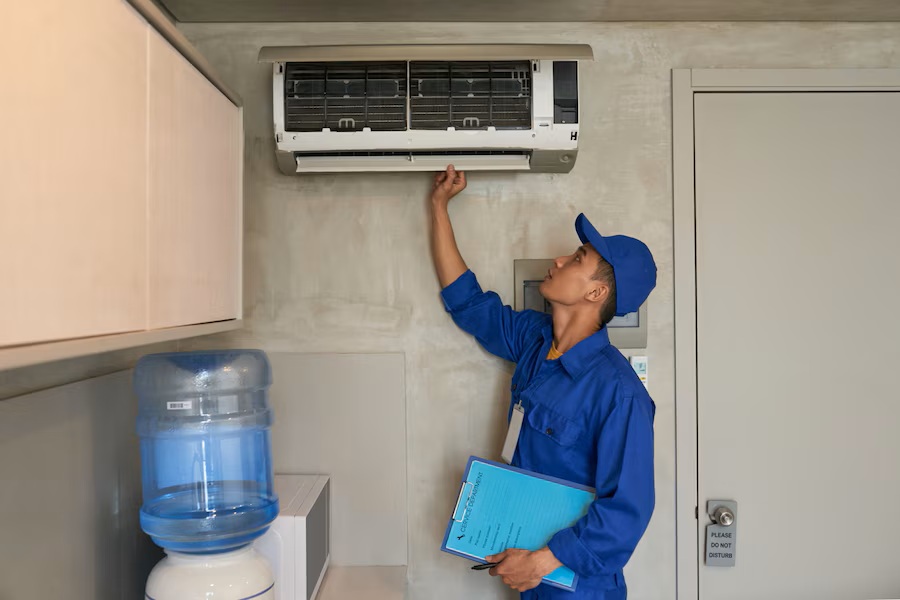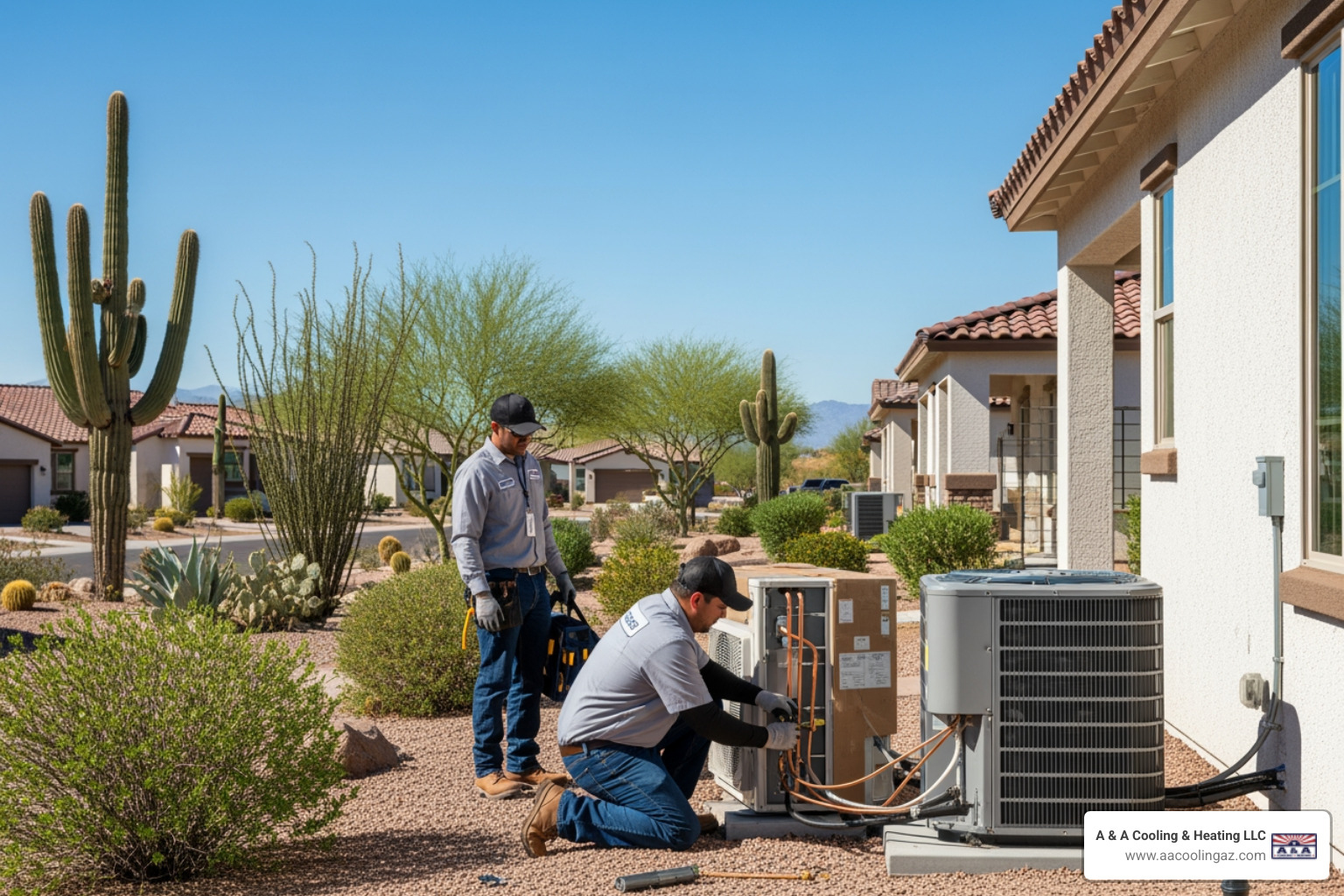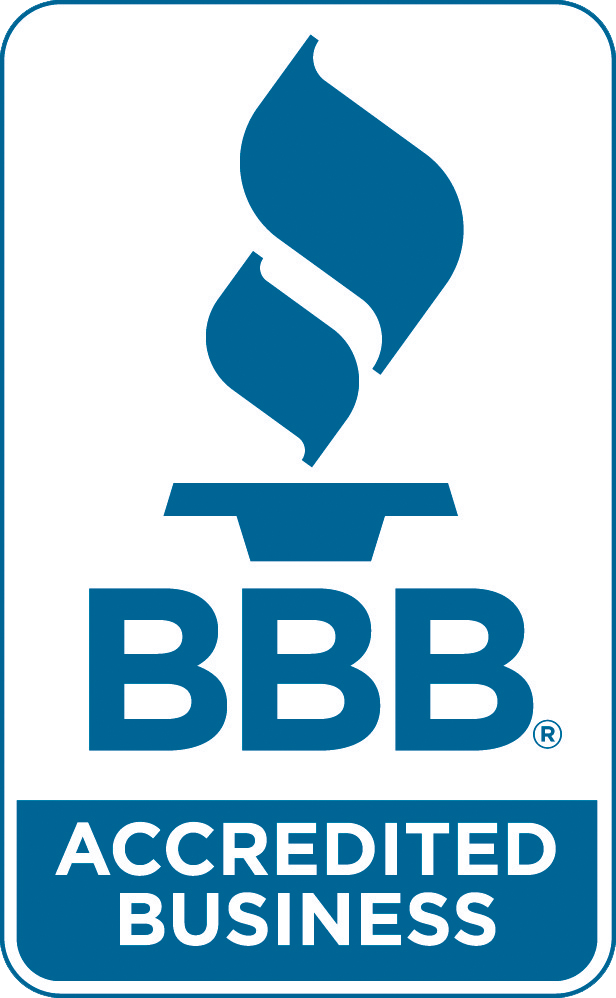Why Is My AC Making a Hissing Sound in Gold Canyon?

If your AC unit in Gold Canyon has started making a hissing sound, it likely means there is a problem that needs attention. While some noises coming from HVAC systems are normal, a consistent or sudden hissing sound usually points to a deeper issue within the system. Since summer temperatures in Gold Canyon can rise quickly, you will want your AC running smoothly. A sound like hissing can be a sign that something is getting in the way of that.
This kind of sound can come from different parts of the system and often signals a leak, pressure problem, or damage that needs to be fixed. Letting it continue without having it checked can lead to more serious damage, higher utility costs, or system failure. Understanding what is behind these noises can help homeowners respond early, keep their systems working efficiently, and avoid preventable repairs.
Common Causes of Hissing Sounds in AC Units
A hissing sound might seem minor at first, but it almost always points to an air or refrigerant flow issue. Knowing where that sound is coming from will help you figure out what kind of problem you are dealing with. These are the most common causes.
1. Refrigerant Leaks
Refrigerant moves through your AC system to absorb heat and cool the air. If there is a hissing noise along with weaker cooling, there is a chance refrigerant could be escaping through a damaged line. This leak usually occurs in the copper lines or at connection points. Over time, dropped pressure from a refrigerant loss can leave your home warmer than you want it to be. It also puts extra strain on other AC components.
2. Internal Valve Leaks
AC systems use various valves and seals to manage airflow and pressure inside the unit. If one of these valves begins to fail, it may not close properly, causing a high-pitched hiss. This can happen in places like the compressor or the evaporator coil. These valves are not designed to make much noise, so a sudden hissing sound from them is worth having looked at.
3. Cracks or Gaps in Ductwork
Hissing sounds are not always coming from inside the unit. Sometimes the cause is loose or damaged ductwork. Cracks, gaps, or disconnected joints in the air ducts can let air escape as it travels to the vents, creating a soft but noticeable hissing or whistling sound. In some cases, this lost air lowers your system's overall efficiency and makes it harder to cool your home evenly.
4. Faulty Expansion Valve
The expansion valve drops the pressure of the refrigerant before it enters the evaporator coil. If it is not working properly, it could cause pressure issues on the line, leading to a strange hissing sound near the indoor unit. A faulty valve might also affect how much cool air reaches your home.
Each of these causes needs the attention of a trained technician. Leaving them unresolved could cause bigger problems, especially during the hottest months of the year in Gold Canyon. If the hissing gets louder or if the system starts having trouble cooling, it is a sign that something is getting worse. The sooner it is addressed, the more likely it can be handled without added damage.
Potential Risks Associated With Ignoring Hissing Sounds
When you first hear a hissing noise from your AC system, it may be tempting to shrug it off, especially if the system still seems to cool your home. But ignoring it can lead to bigger trouble that is far more expensive and disruptive to deal with. Problems that start with a small leak or worn component can quickly grow into costly system damage if left unchecked.
The most common risk is reduced energy efficiency. When refrigerant levels drop or airflow becomes restricted due to a leak, your AC has to work harder and longer to reach the set temperature. This extra strain makes it burn more energy, which drives up monthly electric bills. It may also shorten the lifespan of key components such as the compressor or the fan motor.
In some cases, pressure builds up in unsafe ways when valves or regulators fail, leading to damage that impacts both the indoor and outdoor units. That can lead to complete system failures, water leaks, or electrical problems. Even worse, refrigerant leaks can pose health risks and are not safe to handle without proper equipment and training. All of these problems make it clear that ignoring strange sounds, especially hissing, is not worth the risk.
Steps Homeowners Can Take to Prevent Further Damage
When it comes to AC maintenance in Gold Canyon, the sooner a problem is spotted, the easier it usually is to fix. Waiting too long can turn a small repair into a major replacement. While serious issues need to be addressed by trained professionals, there are steps you can take to stay ahead of problems.
Here are a few smart actions homeowners can take:
1. Listen carefully to your system. If you hear hissing near the air handler, compressor, or ductwork, do not assume it is normal. Take note of where and when the sound happens.
2. Watch for changes in performance. If you notice weaker airflow, hot spots in the house, or the AC running longer than usual, that could be a sign of refrigerant loss or duct issues.
3. Check your air filters. Dirty filters reduce airflow and can create pressure issues that uncover other weak points in the system.
4. Keep up with scheduled maintenance. A yearly inspection helps find leaks, loose parts, and worn valves early on.
5. Know when to call. Any new sound or change in performance that does not go away quickly should be checked by one of our professionals.
Homeowners should feel confident checking filters and listening for unusual behavior, but trained technicians are needed to inspect refrigerant levels, locate hidden leaks, or tune valves and pressure points. Trying to fix these issues without the right tools can do more harm than good and can void equipment warranties.
How Our Technicians Can Help
When AC systems in Gold Canyon start to hiss, our technicians know exactly where to look and what to test. These types of problems often take special tools to diagnose, especially when it comes to finding leaks hidden inside walls or behind panels. You might hear the sound near one part of the house, but the issue could be somewhere else in the system.
Our professionals inspect refrigerant levels, pressure points, duct seals, valves, and filters. If parts are worn or leaking, they are replaced with the correct match for your equipment. We test the system before and after repairs to make sure everything is sealed and running smoothly. For homeowners who want to avoid surprise breakdowns in peak summer heat, regular service visits help catch these issues while they are still easy to manage.
We focus on keeping your AC reliable all summer long and protecting the equipment you have invested in. Whether it is a one-time repair or routine inspection, we take a complete look at your system to make sure strange sounds do not return later.
Ensuring Your AC Runs Smoothly in Gold Canyon
Any strange noise coming from your AC system deserves a closer look, and hissing is one of the more serious ones. It is a sign that air or refrigerant may be escaping somewhere it should not. That alone can damage the AC unit, reduce comfort inside the home, and raise utility bills. Fortunately, most of these issues can be fixed before causing long-term problems if they are caught early.
The best way to keep your cooling system in reliable shape is to stay proactive. Keep up with simple tasks such as filter replacement, listen for changes in the way your system sounds, and schedule professional inspections each season. This helps catch early warning signs that lead to bigger repairs. When AC noises start up in the hot weather of Gold Canyon, do not wait too long to act. Getting it checked now can save you from more stress and higher repair costs later.
Stay ahead of costly repairs and avoid unexpected breakdowns by scheduling AC maintenance in Gold Canyon to keep your system running efficiently throughout the summer. The experienced team at A & A Cooling & Heating LLC is ready to provide detailed inspections and reliable solutions tailored to your home’s needs. For a quick estimate or to book a service visit, please contact us today.



















